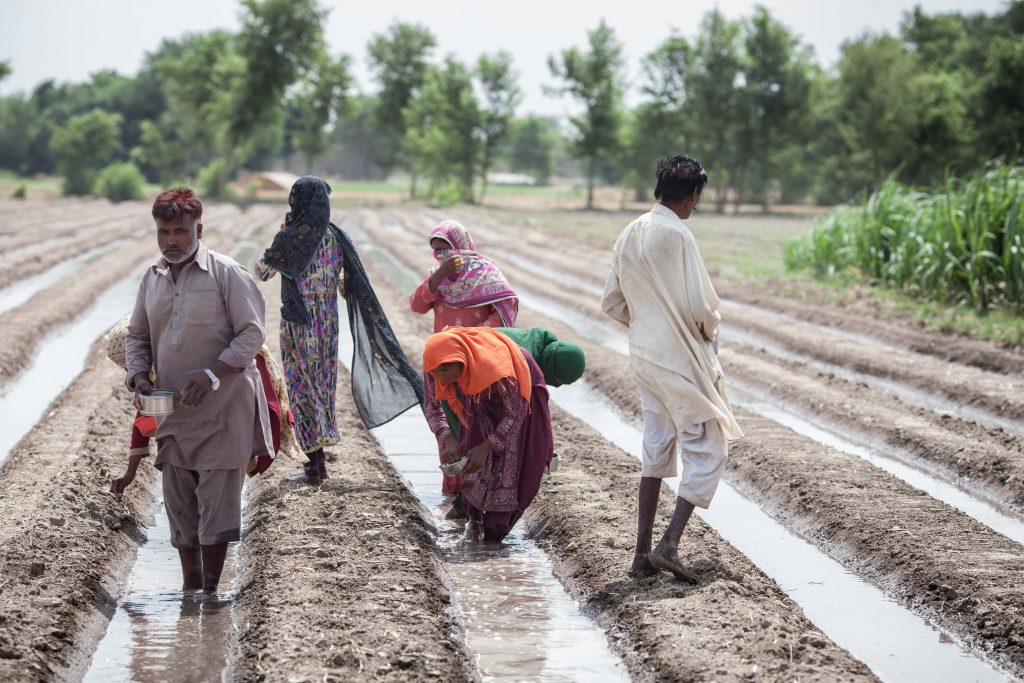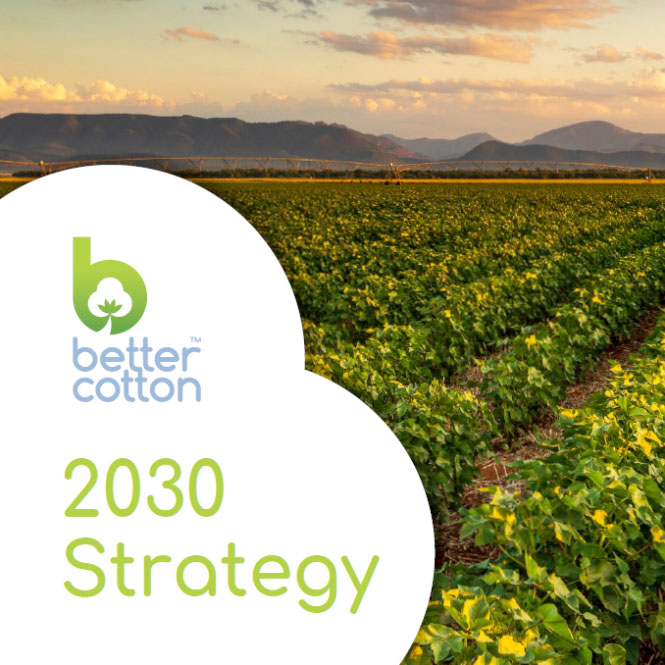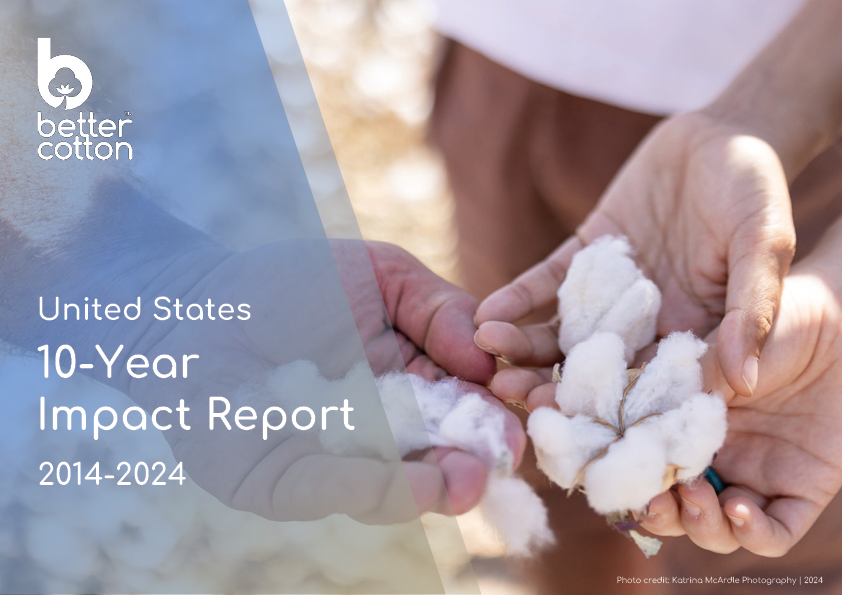- Who we are
- What we do
In just over 10 years we have become the world’s largest cotton sustainability programme. Our mission: to help cotton communities survive and thrive, while protecting and restoring the environment.
- Where we grow
Better Cotton is grown in 22 countries around the world and accounts for 22% of global cotton production. In the 2022-23 cotton season, 2.13 million licensed Better Cotton Farmers grew 5.47 million tonnes of Better Cotton.
- Our impact
- Membership
Today Better Cotton has more than 2,700 members, reflecting the breadth and diversity of the industry. Members of a global community that understands the mutual benefits of sustainable cotton farming. The moment you join, you become part of this too.
- Associate Membership
- Civil Society Membership
- Producer Organisation Membership
- Retailer and Brand Membership
- Supplier and Manufacturer Membership
- Find Members
- Member Monitoring
- Better Cotton Platform
- myBetterCotton
- Resources – Better Cotton Conference 2022
- Complaints
- Whistleblowing
- Safeguarding
- Get Involved in the Better Cotton Programme
- Thank you for contacting us
- Better Cotton’s Data Privacy Policy
- Log in
- Members’ Area
- Request for Proposals
- Better Cotton Cookie Policy
- Web Reference
- Measuring Cotton Consumption
- How to Implement the Chain of Custody Standard
- Resources – Better Cotton Conference 2023
- Certification Bodies Old
- Latest
- Sourcing
- Latest
The founding premise of Better Cotton is that a healthy sustainable future for cotton and the people that farm it is in the interests of everyone connected with it.
Let us help you find what you’re looking for
Results for {phrase} ({results_count} of {results_count_total})Displaying {results_count} results of {results_count_total}
In 2018, the Better Cotton Initiative (BCI) experienced a historic level of uptake1as 93 Retailer and Brand Members sourced more than one million metric tonnes of Better Cotton – that’s enough cotton to make approximately 1.5 billion pairs of jeans.
Better Cotton uptake increased 45% on the previous year, and at the end of 2018, retailer and brand member sourcing of Better Cotton accounted for 4% of global cotton consumption2. By integrating Better Cotton into their sustainable sourcing strategies and increasing sourcing commitments year-on-year, BCI’s Retailer and Brand Members are driving demand for more sustainable cotton production worldwide.
Now, to continue to accelerate the mainstreaming of Better Cotton and hit BCI’s 2020 targets – to reach and train 5 million cotton farmers and have Better Cotton account for 30% of global cotton production – BCI needs the next wave of sustainability leaders to come on board and close the gap between supply and demand. (In the 2017-18 cotton season, Better Cotton is forecast to account for 19% of global cotton production.)
Founding BCI Member, H&M group, has played an integral role in the growth of Better Cotton; in 2018 the retailer sourced the largest volume of Better Cotton (for the third year running). ”Cotton is one of H&M group’s most important materials – BCI plays a key role in our goal towards using only sustainably sourced cotton by 2020,” says Mattias Bodin, Sustainability Business Expert, Materials and Innovation at H&M group.
adidas is another founding member with ambitious sustainable sourcing targets. In 2018, adidas sourced 100% of its cotton as more sustainable cotton. Ebru Gencoglu, Senior Manager, Merchandising and Sustainability at adidas commented, ”BCI and adidas have worked closely from the beginning to reach this ambitious goal. BCI has engaged actors throughout the supply chain to enable the right amount of supply in the right locations. This has helped our suppliers to source cotton as Better Cotton, which allowed us to ramp up sourcing in a short period of time.”
BCI’s demand-driven funding model means that retailer and brand sourcing of Better Cotton directly translates into increased investment in training for cotton farmers on more sustainable practices. For example, in the 2017-18 cotton season, BCI Retailer and Brand Members, public donors and IDH (the Sustainable Trade Initiative) contributed more than ‚Ǩ6.4 million, enabling more than 1 million farmers across China, India, Mozambique, Pakistan, Tajikistan, Turkey and Senegal to receive support and training*.
ALDI South Group are among a group of new BCI Members who will help to increase uptake of Better Cotton in 2019 and beyond. Katharina Wortman, Director CRI at ALDI South Group said, ”ALDI supports sustainable cotton standards in their aim to ensure improved farming conditions and reduced environmental impacts. ALDI joined BCI at the end of 2017, and we foresee that BCI will play a significant role in our approach to responsibly sourced cotton. The mass-balance chain of custody system used by BCI enables our supply chain partners to more easily source Better Cotton.”
A member that has illustrated how to scale uptake of Better Cotton rapidly is Gap Inc. The retailer joined BCI in 2016 and is now among the top five BCI Retailer and Brand Members based on total Better Cotton sourcing volumes. ”Better Cotton sourcing is an important part of Gap Inc.’s sustainability strategy. We have been able to leverage our scale across our portfolio of brands to accelerate sourcing of Better Cotton in a relatively short time,” said Agata Smeets, Director, Sustainability Sourcing Strategy at Gap Inc.
As well as increased investment in farmer training and capacity building, uptake of Better Cotton sends a clear signal to the market and has an impact throughout the supply chain. Cotton traders are seeing the increased demand for more sustainably produced cotton but believe there is much more to be done. Marco Baenninger, Head Trader Hand Picked Cotton at PaulReinhartAG said, ”Better Cotton has become an integral part of the international cotton trade. It’s very pleasing to see that uptake from retailers has increased strongly over the last few years. However, there is still a lot to do. Some organisations are still skeptical, but in the long-term they risk losing market share if they overlook more sustainable options. That says a lot about the success of BCI and other sustainable cotton initiatives and standards in promoting sustainably produced cotton.”
Transforming cotton production worldwide requires commitment and collaboration from the entire cotton supply chain. As we celebrate BCI’s 2018 sourcing milestone, we thank all of our members and partners for supporting BCI. The retailers and brands, cotton traders and spinners who sourced the highest volumes of Better Cotton in 2018 will be revealed in the Better Cotton Leaderboard, launching at the 2019 Global Cotton Sustainability Conference in Shanghai in June.



